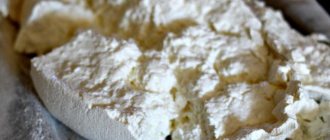Lemon juice is an indispensable helper in many household chores. Besides cooking, there are a huge number of ways to use it. For example, cleaning a microwave or kettle from scale. But it is not uncommon for situations to arise when the idea arises to cook something tasty, but, as luck would have it, this citrus fruit was not at hand. In this case, a completely logical question arises: “Is it possible to replace lemon juice with other products without compromising the taste?” It turns out that you can correct the situation in several ways.
What recipes use lemon juice?
It is generally accepted that the most valuable substance that lemon has is ascorbic acid. It is able to tone the body, improves memory and concentration, and is also the number one remedy for the development of an inflammatory process in the body or an infectious disease. It has low calorie content.
As for its use in cooking, in this area lemon juice is also in demand and loved by housewives. It is good in the following cases:
- As a salad dressing, it is often one of the ingredients in the sauce.
- In pickling cucumbers or tomatoes.
- Suitable for preparing thirst-quenching drinks.
- A common component in cream recipes.
To enhance the taste of the selected spices for meat or fish, before placing the product in the oven, be sure to pour a small amount of juice over it. It is worth noting that lemon juice makes the texture of meat softer.
To replace fresh citrus, you can purchase concentrate. It is sold in many grocery hypermarkets. Unlike the lemon itself, such a solution will always be on hand, it can be stored for a long time, and the taste is the same.
Orange extract
Orange extract - obtained from the essential oil of orange peel, water and alcohol.
It has a fairly strong taste and aroma, so you only need to use a little bit in cooking: a few drops are enough.
The ingredient is used in recipes for oriental pastries, baked goods, aromatic marinades for meat and fish, salad dressings, cocktails and homemade liqueur.
If the extract seems too strong and straight-forward, add a little sugar and water or squeeze a little lemon juice to harmonize the flavor.
Use of fruit juices
In the preparation of some dishes, as well as drinks, lemon juice is used due to its ascorbic acid content. It can also be obtained from other analogue fruits: grapefruit or sour apples.
To extinguish soda, cranberry, lingonberry or sea buckthorn juice without sugar is suitable; you can also use berry concentrates.
What else can you substitute for lemon juice? A great alternative is berries. It has long been known that they can not only replace this citrus fruit in taste, but also enrich the dish with vitamins. Berry juice contains many useful substances. They have a beneficial effect on digestion and skin condition. Thus, berries are a good answer to the question of how to replace lemon juice in a recipe for jelly, jam, fruit sauce, jelly or sauce for meat. It is important to note that if you plan to use it to marinate a meat or fish dish, it is not recommended to use the version containing sugar. For such purposes, it is best to choose pomegranate or grape juices.
When making jam, unsweetened fruit juices help preserve all the beneficial components of the berries and make the product not only tasty, but also healthy. Even after long-term storage, such jam will retain its original consistency and will not become sugary.
Replacement of lemon in cooking
- In salad dressings . Forget about mayonnaise as a salad dressing. There are easier, healthier and tastier alternatives. For example, lemon juice. If it is not nearby, use any vinegar - wine, apple, raspberry or balsamic.
- For the marinade .
Kebab lovers know: for a successful marinade you need three ingredients - acid, vegetable oil and aromatics. The acid softens the fibers of the fabric, making the meat softer so that the oils, spices and herbs can be absorbed. As you can see, there’s nowhere without acid. What to do if you don’t have fresh lemon on hand? Use citric acid. It is sold in any store. In addition, small bags are convenient to take with you on trips to nature - they take up very little space. - In conservation .
What is not canned for the winter: vegetables, fruits, mushrooms, berries, meat, fish. And in almost every recipe there is a place for lemon juice, which is a preservative and softens the taste. There is no big difference between using juice or acid. These products are interchangeable. Want something new? Add sour berries instead: lingonberries, cranberries, red currants, rowan. - For the sauce . There are many different sauces: from the well-known mayonnaise and ketchup to the most exotic. The lemon juice in them adds a piquant sourness. But don't be afraid to experiment and replace it with acids and vinegars. In addition, there is a sour oriental spice, sumac, which is traditionally added to sauces intended for meat.
- For drinks. A well-known rule for maintaining health is to drink a glass of water in the morning on an empty stomach. Lemon juice is often added there because it contains a lot of vitamins, acids and minerals. This drink improves digestion, tones the body and stimulates brain activity. However, water with the juice of any citrus fruit will have the same properties: orange, tangerine, grapefruit, lime. They are also high in vitamin C.
In addition to drinks for health, there are drinks for the soul. Of course, we are talking about lemonades. Despite the fact that the name itself contains the main ingredient - lemon, its juice can always be replaced with the juice of another citrus fruit.The taste will change a little, but what if this option becomes your favorite?
- For baking . Do you want to give your baked goods a pleasant taste with a slight sourness? Add lemon juice to the dough. If you don't have juice on hand, use acid.
- For desserts . Lemon juice is used in the preparation of mousses, jams, meringues, creams, and glazes. Replace it with citric acid or the juice of another citrus. In the latter case, the dessert will acquire a new unusual taste.
- For mayonnaise . Nowadays you can buy mayonnaise in any supermarket, but some housewives make it themselves. It should contain an acid, which is often used as lemon juice. But nothing bad will happen if you replace it with citric acid or vinegar.
Proportions
Be careful with the proportions: different varieties have different levels of acidity. Juice of 1 lemon = 5 grams of citric acid = 1 tablespoon of vinegar = equal volume of juice of another citrus.
Advantages and disadvantages
Sometimes lemon juice is substituted because of an allergy, sometimes for the sake of variety, sometimes because it simply isn’t on hand. How will this affect the result?
pros:
- Saving . Recipes most often do not require the whole lemon, but, unfortunately, you cannot buy a slice. So the lemon sits in the refrigerator, and then, completely dry, it goes into the trash. This will not happen if you use citric acid or vinegar, which are sold in bags and bottles, respectively. You will definitely use them completely, since they last longer.
- Variety of taste . The dish will sparkle with new colors if you add other citrus juices, sour berries or even sumac (a sour oriental spice). Modern nutritionists claim that a varied diet prevents overeating.
- Rescue from allergies . Replacing lemon juice with other ingredients can allow allergy sufferers to enjoy gastronomic delights without harm to their health.
Minuses:
- There may be errors in proportions.
- Using vinegar can be dangerous for people suffering from diseases of the gastrointestinal tract, gastritis, and ulcers.
As you can see, there are not many disadvantages, but they are worth keeping in mind.
Substitution with vinegar
As a rule, the lack of lemon is a serious problem when preparing dessert dishes: pastries, cakes and various creams. However, skillful housewives have long found a way out of the situation and do not worry when there is no citrus at home, and do not run to the store to complete their idea.
You can easily replace lemon juice with vinegar. Almost every home has a wine or apple store. In this case, 1 tbsp will be enough. l. natural vinegar.
In extreme cases, a 6% concentration of an ordinary table will do. It can be used for making sweet creams and for seasoning cold dishes. Table vinegar is mixed with olive oil. A particularly tasty dressing is obtained when preparing light salads in the summer. If a 9% solution is used, it is recommended to dilute it with water in an equal ratio.
Five tablespoons of regular table vinegar can replace half a cup of citric acid. That is, this method turns out to be more economical.
Application of citric acid
Another easy way to replace fresh citrus. Before replacing lemon juice with citric acid and moving on to the procedure itself, you need to decide what taste you want to end up with: pronounced, with a hint of sourness, or less intense. The concentration of the solution will depend on this. For the standard version 1 tbsp. l. powder is diluted in warm water (50 ml). To enhance the taste and add sourness to the dish, it is recommended to add half a teaspoon of apple cider vinegar. When using the product for making desserts, you can dilute the citric acid with honey.
It is especially convenient to use lemon powder if the task is to prepare homemade paste for sugaring. Sometimes it’s enough just to pour it in, even without adding water.
Sweets and drinks
The most common use of citric acid is in jellies and marmalades, fruit syrups, and drinks. In fresh desserts, it is best to use neutral lemon juice or fruit analogues. The juice of green apples, quinces, citrus fruits, wild berries, and pineapple provides a lot of acid. When it is possible to introduce natural fruit flavor, oranges, tangerines and other fruits will help.
Creamy fruit and chocolate desserts are sometimes infused with alcoholic sourness in the form of wine, apple cider vinegar or balsamic vinegar. Proportions need to be measured according to the situation so that the aroma of the product does not spoil the overall composition.
It should be taken into account that dishes prepared with fresh juice will be stored a little less. However, a natural base with a subtle aroma and the right combination of sugar and sourness will be an excellent base for jam, fillings for sweets and baked goods, compotes, impregnation for biscuits, syrups for smoothies and other dishes.
How to replace lemon juice when making pickles
As a rule, sour citrus is indispensable in folk recipes for preservation. But what to do if you don’t have a lemon on hand, and it’s too late to run to the store? How to replace lemon juice when preparing marinade for vegetables? An excellent alternative is the same vinegar. The best substitutes would be wine, table or apple. A good option would be to use fruit vinegar. This solution not only retains a pleasant, mild odor, but can also promote health.
In addition, the recipes of some fruit pies and other attractive desserts also allow the use of vinegar instead of citric acid. All you need to do is add a couple of teaspoons before finishing the dough.











